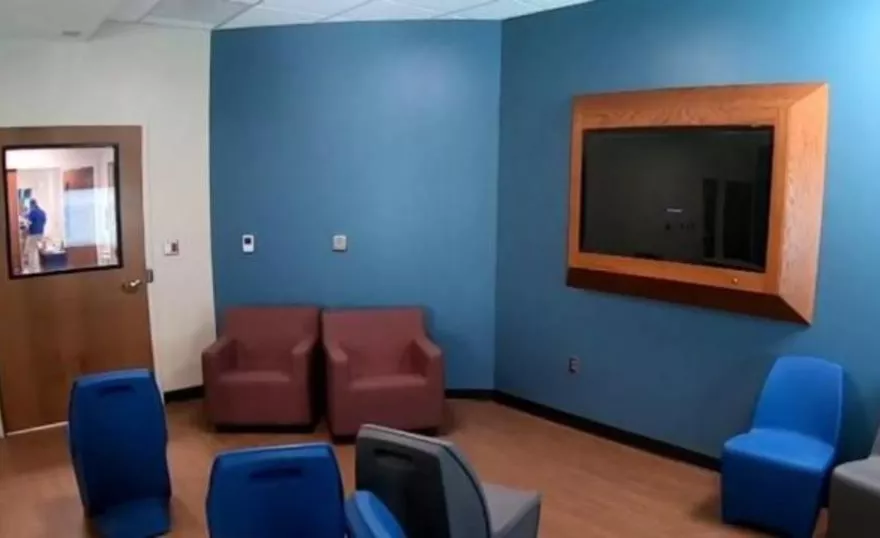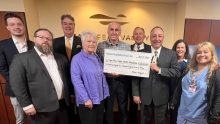General News
On Wednesday, Cape Fear Valley Medical Center allowed a sneak peek at the region's newest mental health treatment center for kids.
When planning for the center started three years ago, there was no way for anyone to know about the pandemic and its effects on mental health – an impact that will likely keep the facility busy when it opens in May.
Every inch of the Dorothea Dix Adolescent Care unit has been designed with the patients in mind. The 16-bed facility has group therapy rooms and outdoor play space. The 6-to-10 day program is for kids in crisis ages 13 to 17.
“They are dealing with depression, severe anxiety and psychosis," says Dr. Kenneth Fleishman.
“The goal is to get them back home with their family," says John Bigger, behavioral health director at Cape Fear Valley Health System.
A CDC report shows, nationwide, teen girls have been particularly affected since the pandemic — with increases in anxiety, trauma, eating and obsessive-compulsive disorders.
At Cape Fear Valley, the number of kids and teens admitted for mental health conditions went up 21% from 2020 to 2021 with more than 400 patients so far this year.
Last January, 17-year-old Abby Salek attempted to take her own life.
“I was so deep in this struggle and this inner turmoil. I was very impulsive," she said.
The closest treatment center was in Wilmington, 90 miles from her home in Fayetteville.
“They didn’t help me with my emotions at all. They just had half-hearted group therapy attempts where they ask you how you are feeling five times a day," she said.
Fleishman says one of the biggest issues they've seen is an increase in kids and teens who became isolated during the pandemic, and now are struggling to learn social skills again.
Salek says part of her healing, is giving mental health a voice.
“I want people to know that there is always hope," she says.
And now, there’s a new place to find hope, closer to home.
The state provided $4 million in funding from the Dorothea Dix fund, and Cape Fear Valley is still trying to fundraise another $500,000.
In the Triangle, WakeMed has seen a 66% increase in children and teens showing up to the emergency department with a behavioral health condition. WakeMed is currently looking for a location to build a 50-bed hospital to become a first stop for people in crisis.




